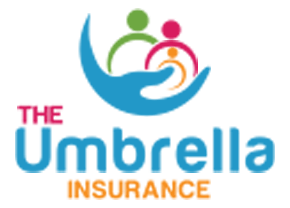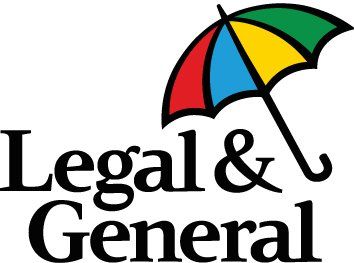What is Term Life Insurance?
Term life insurance is a form of life insurance that lasts for a set number of years — known as the term
— before expiring. If you die before the term is up, your beneficiary
— the person(s) you elected — receives a death benefit
as a tax-free lump sum of money that can be used for college, lost wages of the deceased, funeral expenses, or for any other use.
Due to its simplicity and affordability, purchasing term life insurance is one of the most popular ways to protect your financial future. However, other types of life insurance can be a better fit for individuals with specific circumstances, such as lifelong dependents or a high net worth. Speaking to a life insurance adviser is the best way to determine what type of policy is the best fit for you.
How term life insurance works
Purchasing term life insurance is very straightforward. There are only a few things you need to know to get started.
Term Life Insurance Features
| Available Terms | 10, 15, 20, 25, 30, 35, and 40 years |
|---|---|
| Cost Ranges | $8-$150/month |
| Cash Value | Not Applicable |
What does the "term" mean in Term Insurance?
The term period can range from 10 to 40 years. You can pay a monthly or annual premium and your policy remains effective for as long as you pay your premium. Once the term is up (similar to a leased car), you no longer pay the premiums and the policy expires.
Depending on the type of term life insurance you have, the premiums can:
- Stay the same for the entire length of the policy
- Increase over time
- Decrease over time in rare cases
What happens if I outlive my term life insurance policy?
The purpose of life insurance is to protect your loved ones from financial obligations in the event the unimaginable occurs. When you’re still saving for retirement, paying off a mortgage, or raising children and planning on sending them to college, life insurance makes a great option.
The fact that term life insurance expires, and there are no additional fees associated with it, makes it the most affordable life insurance option. The expiration is a good thing. It means you survived and you were able to sleep more comfortably at night knowing that your family was covered.
If you outlive your term life policy, the policy expires and you are no longer covered. Your options at that point are to:
- Purchase a new term life policy iIf you still need life insurance coverage
- Convert your policy into a whole life policy if you still need life insurance coverage
- If you had a return of premium policy, the premiums you paid over the policy term will be refunded to you
Understanding the death benefit
If you die while your life insurance policy is still effective, your beneficiary receives a tax-free lump sum called the death benefit. Death benefits can be paid out all at once or incrementally over the course of their lifetime.
How much does term life insurance cost?
Since term life insurance protects your family for a set period of time, term life insurance rates are much cheaper and offer more affordable financial protection than permanent policies like whole life.
In general, life insurance costs are determined by:
Learn more about how much life insurance you need.
- Health-The more likely you are to die while the policy is effective, the more expensive the policy will be. For this reason, unhealthy people, people with a family history of conditions like diabetes or cancer, and those who engage in risky work or hobbies are charged more.
- Age-Older applicants will pay more than younger shoppers. Life insurance costs increase at a rate of 8-10% a year.
- Coverage amount-The larger the death benefit amount, the more you’ll pay for the policy.
- Term length-The longer the policy is in force, the more expensive it’ll be.
- Riders-Adding certain riders to change the stipulations or parameters of a policy may make it more expensive.
- The Company You Select-Life insurance is similar to retail in that there are different prices based on what company you select. We recommend shopping around to get the best deal. We recommend dealing with a company that has been around at least 70 years.
Because age is one of the major deciding factors in a life insurance policy’s cost, it’s important to know how term life insurance rates increases with age when you’re deciding when to buy and what type of coverage you should get. When it comes to age, different companies handle your actual age in different fashions. EX: I am 46 years old. Company A may rate you at the age of 46, while Company B may rate you at 45. Every company is different so be sure to ask what age bracket in which you would fall.
How much term life insurance do I need?
Besides health and age, you need to take into account the amount of coverage a term policy provides to determine the final cost. You want to keep the policy affordable while still ensuring your family will be able to cover their financial needs.
When deciding how much term life insurance you need, you should take into account:
- Outstanding Debt
- Future College Costs
- Dependents
- End-of-Life Expenses
In general, your term life policy should last as long as your longest debt (usually a mortgage) and should cover any remaining costs when you subtract your debts from your existing assets.
Learn more about how much life insurance you need.
Of course, you don’t need to crunch all the numbers by hand. You can find a free life insurance calculator to get a tailored recommendation for the term length and coverage amount you think you should have.
Pros & cons of term life insurance
Here are some quick ways to determine if term life insurance is right for you:
| PROS | CONS |
|---|---|
| Low cost life insurance which only last a certain duration | Only last a certain duration |
| No built in equity so you only pay for what you need | No build in equity so you only pay for what you need You can’t take cash value out |
| Life insurance policy is usually larger | Generally only lasts up to 40 years |
Learn more about if term life insurance is worth it
Term vs Whole Life Insurance
Most insurance shoppers will need to decide between buying term life insurance or whole life insurance.
The main differences between term life insurance and whole life insurance are:
- A term policy expires when the term is up, while a permanent life insurance policy like whole life stays active for as long as you pay the premiums.
- Whole life insurance has a cash value that works like a savings account and can grow or lose value over time.
Because of the cash value and associated fees, whole life insurance is six to 10 times the cost of comparable coverage with term life.
For this reason, whole life isn't the right choice for some people. It can be useful for people with complex financial plans, but a majority of people will benefit more from a simple term life policy that they can afford.
Best insurance companies for term life insurance
What is the best term life insurance company for you? Most people prefer to choose the carrier that offers the best price and that’s a good starting point.
However, you should also consider a company’s customer service record, ratings from J.D. Power, A.M. Best and the Better Business Bureau, and what tasks you can do online versus on paper or over the phone, You should also consider how long the company has been in business.
Use the table below to see The Umbrella Insurance reviews for a couple companies.
| INSURANCE COMPANY | Rating 1-10 (10 being the best) |
|---|---|
| Legal & General America | 9 |
| Lincoln Financial | 7 |
| AIG | 9 |
| Mutual of Omaha | 6 |
| Prudential | 9 |
| Protective | 7.7 |
| Pacific Life | 8 |
| Principal | 8.3 |
| Transamerica | 6 |
You should also take into account how each company treats certain health conditions and lifestyle choices. This can make a huge difference in the final cost of your term policy.
Legal and General America
is a life insurance company based in London. The company currently has over 10 million customers who are policyholders of term life insurance, universal life insurance, and final expense insurance. Legal and General America currently has a 4.4 score in trustpilot.com.
Click for a Free Quote
Call for a Free Quote
Types of term life insurance
While term life insurance is the most basic, straightforward type of life insurance, there are variations available so you can get the insurance policy that best fits your needs. These include:
- Level term life insurance — The premiums remain the same for the life of the policy. Learn more about level term life insurance.
- Annual renewable term life insurance — Renews on a year-by-year basis; premiums usually start lower than a standard term life policy and increase each year. Learn more about annual renewable life insurance.
- Decreasing term life insurance — Premiums remain the same, but benefit amount decreases each year. Learn more about decreasing life insurance.
- Return-of-premium term life insurance — Allows you to get your money back at the end of the term. Learn more about return of premium life insurance.
- No-medical-exam term life insurance — Allows you to skip the medical exam and still receive coverage. Learn more about no-medical-exam life insurance.
- Group term life insurance — Offered through the workplace, but not portable from employer to employer. Learn more about group life insurance.
- Mortgage protection term life insurance — A type of decreasing term insurance where the beneficiary is your mortgage provider and the term is pegged to your mortgage length. Learn more about mortgage protection life insurance.
Is term life insurance worth it?
If you currently utilize your paycheck to help anyone besides yourself, than we strongly recommend having it until your paycheck or business is no longer needed to support another person. It should be your top insurance priority. And since term is cheaper and simpler than permanent, it’s easier to fit it into both your present-day budget and your long-term financial strategy.


